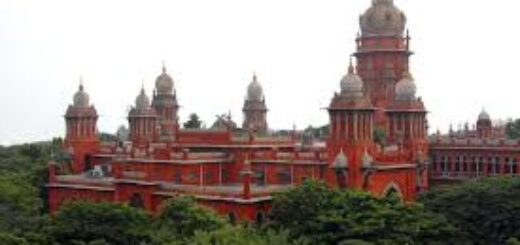The Madras High Court stated that the right to privacy is a basic right that includes the privacy of spouses. The law does not allow spouses to invade each other’s privacy.

The Madras High Court stated that the right to privacy also covers privacy between spouses. The court emphasized that the law should not allow or support one spouse spying on the other. Therefore, any evidence gathered by violating a partner’s privacy cannot be used in court.
Justice GR Swaminathan helped a wife by overturning a decision from the Paramakudi Subordinate Court. The lower court had refused to dismiss the call records that the husband submitted during their marital dispute. The judge pointed out that the husband had secretly accessed his wife’s call history, violating her privacy.
The court noted that the information gathered without the wife’s permission should not be taken lightly. It was important to establish that evidence obtained by violating privacy rules could not be accepted. This would help stop spouses from spying on one another.
The court stated that trust is essential in marriage, and partners should believe in one another. It also highlighted that women have their own independence and should expect their personal space to be respected.
In this case, the husband requested a divorce, claiming cruelty, adultery, and abandonment by the wife. He testified and presented the wife’s call data record as evidence. The wife tried to have this document dismissed, but the sub-judge ruled that her request was too early. She then appealed this decision through a civil revision petition.
The court observed that while some courts used Section 14 of the Family Courts Act to allow evidence obtained by breaching privacy, there was no legal support for accepting evidence that violated the fundamental right to privacy. According to Section 14 of the Family Courts Act, the family court can accept any report, statement, document, information, or matter that it believes will help resolve the dispute effectively.
The court observed that the husband contacted the service provider and got the call records while he had the mobile phone and SIM card. It also pointed out that the call records he provided did not include a certificate as required by Section 65B(4) of the Indian Evidence Act. Therefore, the sub-court should not have postponed its decision on the issue.
The court also mentioned that if there were claims of marital misconduct, these could be proven using official methods, such as interrogatories. It stated that the accused spouse could be required to submit an affidavit, with a clear warning that providing false information could result in perjury charges. The court believed that in special cases, it could investigate the truth itself, but it could not assume that marital misconduct is common and permit any intrusive actions by the partner.
The court granted the wife’s request and overturned the Magistrate’s order.
Counsel for the Petitioner: Mr. D.Senthil
Counsel for the Respondent: Mr.J.Senthil Kumaraiah, Mr.K.Govindarajan, Deputy Solicitor General of India
Amicus Curiae: Mr.Srinath Sridevan, Senior Counsel
Citation: 2024 11/01 InsaneLawyer
Case Title: R v B
Case No: CRP(MD)No.2362 of 2024








